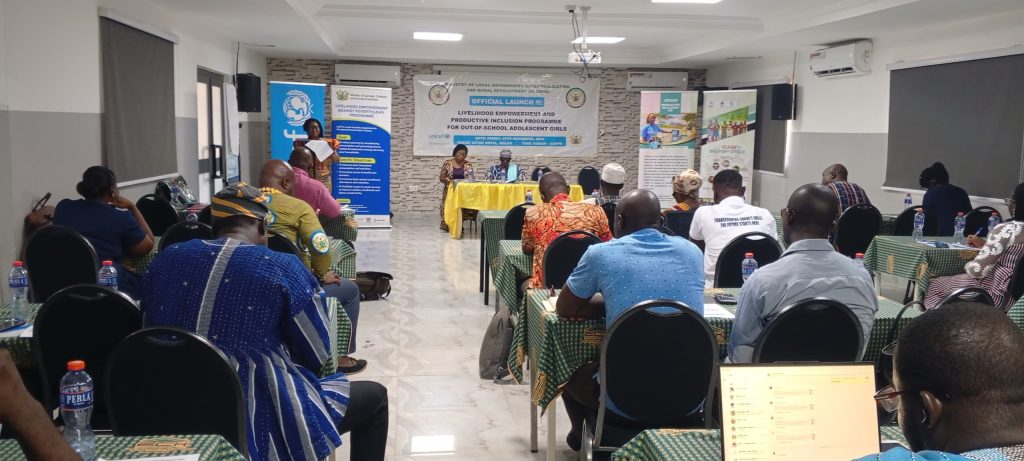By Anthony Adongo Apubeo
Bolgatanga, Nov 18, GNA – The United Nations Children Fund (UNICEF), in collaboration with the Ministry of Local Government, Decentralisation and Rural Development, have launched an intervention to offer livelihood empowerment support for poor and vulnerable out-of-school adolescent girls and young female adults.
Dubbed, “Livelihood Empowerment and Productive Inclusion Programme for Out of School Adolescent Girls and Young Female Adults,” the intervention aims to support efforts to prevent and respond to child marriage and teenage pregnancies in the Kassena-Nankana Municipality in the Upper East Region and East Mamprusi Municipality in the North East Region.
To this end, the programme seeks to improve the income security and economic opportunities for at-risk and vulnerable adolescent girls and increase the bodily autonomy and decision-making power of the girls to facilitate their smooth transition into adulthood.
The programme would therefore leverage on existing government social protection interventions and would target adolescent girls within the ages of 16 to 21 living in the Livelihood Empowerment Against Poverty Programme (LEAP) households, the Ghana Health Service Adolescent Safety Net Programme, and the implementation structures of the Complementary and Livelihood Asset Support Scheme (CLASS) under the Ghana Social Protection System.
The pilot intervention formed part of the umbrella programme known as the “UNFPA-UNICEF Global Programme to End Child Marriage,” and it is designed to provide comprehensive vocational and business skills training to the vulnerable girls and young women.
Addressing stakeholders at the launch in Bolgatanga, Ms Christiana Gbedemah, Social Policy Specialist, UNICEF, said that even though child marriage in Ghana had declined from about 40 per cent in the 1980s to 19.3 per cent in 2018, one in five girls was still married or in informal union before the age of 18 years.
She emphasised that the prevalence of marriage by age 15 had stalled at five per cent over the last 10 years without any visible improvement, and attributed the challenge to high levels of poverty, economic hardship, inadequate education, and livelihood opportunities among others among vulnerable families.

Therefore, the programme was to help address these challenges and empower adolescents to help prevent teenage pregnancies, child marriage and other challenges that hinder the growth of young people and contribute to the achievement of the Sustainable Development Goals (SDGs).
In a speech read on his behalf, Alhaji Amin Abdul Rahaman, Chief Director, Ministry of Local Government, Decentralisation, and Rural Development, said the initiative represented a significant advancement in the ongoing mission of the government to empower and support vulnerable populations across the country.
He said the initiative aligned perfectly with the government’s commitment to enhancing the implementation of programmes geared towards skills development and community empowerment, and the ministry was committed to giving it the support needed to succeed.
Dr Hafiz Bin Salih, the Upper East Regional Minister, who launched the intervention, noted that for economic reasons, some parents often gave out their adolescent and young female adults in marriage or push them into early marriage to settle family debts.
This, the Minister said, limited these young girls from reaching their full potential, and the programme was in the right direction to address these challenges and pledged his full support for the implementation of the project.
“On behalf of the Government of Ghana, I express my deepest gratitude to UNICEF and all stakeholders that played a role in the realisation of this pilot programme. Let us continue to work hand in hand to ensure the programme is implemented satisfactorily to make a compelling case for expansion and scale-up,” he added.
The two municipalities, represented by their chief executives and coordinating directors, among other staff, expressed their commitment to the project’s implementation.
GNA